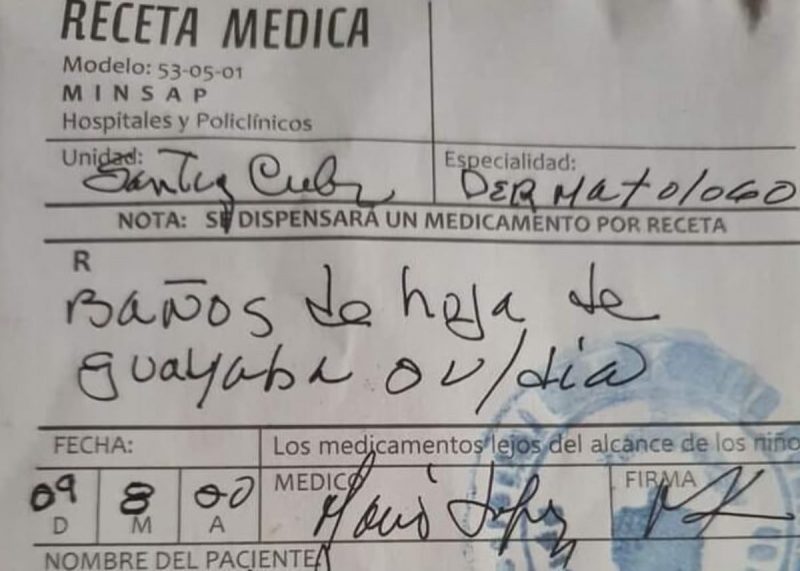“We all have scabies here,” the Cuban affairs digital outlet Diario de Cuba headlines a report that describes a “medieval-style” picture in which entire families in Mayarí, Holguín, remain afflicted with a skin disease that is usually identified with stray dogs.
Scabies is a controllable disease, it just needs to have lindane lotion or permethrin ointment applied to the skin to kill the mites and their eggs. Yet pictures provided by the independent journalist Osmel Ramírez show the sores that the lack of treatment for scabies has caused in some who have been suffering from it for months.
The problem is the growing shortage of medicines that plagues all of Cuba. Research carried out on the island by the Foundation for Human Rights in Cuba (FHRC) indicates that pharmacies lack everything from an antipyretic such as Dipyrone or Duralgine to medications that chronically ill patients such as diabetics and hypertensive patients should take.
And the same is true of drugs used against controllable diseases such as scabies. Doctors recommend green medicine that, as retired Luis Torres told the Diario de Cuba journalist, “relieves, but does not heal.”
Meanwhile, in dozens of interviews with Cuban doctors who left missions abroad, FHRC learned that they were forced to inflate the statistics on the number of patients consulted so that Cuba could charge more and look better, and as part of this fraud they had to destroy medicines sent from Cuba so that the number of consultations matched the inventory of prescribed medicines.

Guava leaves as a prescription for scabies because there are no medications
The Cuban government confiscates from these doctors between 75 and 90 percent of the salaries paid by host countries, which has become the island’s main source of foreign exchange.
Officials involved in this human trafficking operation such as Dr. Jorge Juan Bustillo, director of the Central Medical Collaboration Unit that organizes the contingents, assure that the money taken from the collaborators is used to support Cuba’s public health system. But not only realities such as the outbreak of scabies in Mayarí deny such assertion, but also official figures: according to the National Office of Statistics and Information of Cuba, ONEI, exported professional services contributed $6.4 billion in 2018; however, the following year only $96 million were invested in health and social assistance.
As the Diario de Cuba reporter says, there is no solution in sight to improve the supply of medicines that are in absolute lack. “The Government practically does not speak of the subject. It seems to be only aware of the development of vaccines against Covid-19 and neglects other diseases, as much or even more dangerous.“
It is obvious that the development of a Cuban vaccine and altering the statistics to be able to show low numbers of infected and deceased people due to the pandemic seeks to supplement Havana’s campaign to have the Nobel Peace Prize awarded to the dozens of Henry Reeve brigades it hastily dispatched to nearly 40 countries. Brigades whose members, like those of the permanent medical missions, are subjected to conditions of forced labor and modern slavery such as the withholding of wages and ID documents, limitation of movements, threats and intimidation, etc.
Meanwhile, as Osmel Ramírez ends up saying in his report, “the people suffer from plagues and curable diseases”, in a health system that seems to be going back to the Middle Ages, forcing them to endure, without treatment, the diseases of stray dogs.
But Cubans are less and less submissive to being treated like this while the billions snatched from the medical missions disappear. As the Cuban Conflict Observatory has recorded, protests throughout the island increase from month to month, and among them, signs continue to flourish with this question on them: “Where are my money and my medicines?”

